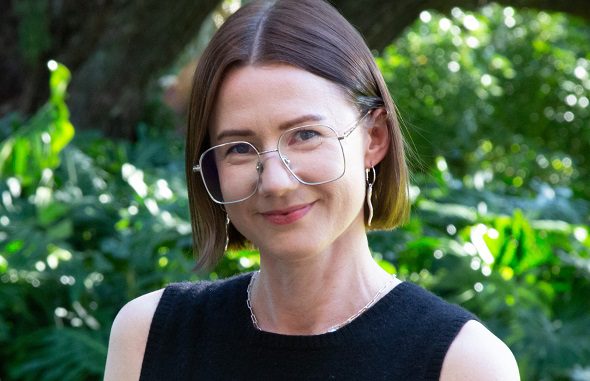
Charlotte Blacklock
‘Exploring the health needs of young people with a non-binary gender identity ‘
Murdoch Children’s Research
Awarded 2021
Co-funded by Combined Rotary Clubs of Mackay
“Gaining knowledge of the healthcare needs of non-binary youth will be an important first step in determining the safest and most appropriate interventions for reducing gender related distress.”
Researcher Profile
For the past several years, I have volunteered as a peer-support counsellor, workshop facilitator, and well-being support officer for various LGBTQIA+ organisations. Since completing my Bachelor of Psychology (Hons) in 2019, I have worked as a mental health and disability support worker and more recently as a research assistant within the gender research team at the Murdoch Children’s Research Institute.
Through these roles, I have developed a passion for working with LGBTQIA+ youth who, due to stigma and lack of family support, are disproportionately at risk of developing mental health difficulties.
Project Summary
For many individuals gender identity can best be described in a binary way i.e., male or female. However, an increasing number of young people do not identify exclusively as male or female. These young people have a non-binary gender identity and may identify as both male and female, as neither male nor female, with different genders, or with no gender at all. Non-binary young people are significantly more likely to develop depression, engage in suicidal ideation, and attempt suicide than their cisgender peers – i.e., those whose gender identity and birth-assigned gender align. In fact, a recent study found that among the non-binary youth surveyed, 77% had self-harmed and 34.4% had attempted suicide in the past year. These alarming numbers are in part explained by lack of societal acceptance towards non-binary gender identities, lack of family support, high rates of victimisation, and barriers to gender-affirming healthcare. Given the tendency for these vulnerabilities to progress into deleterious outcomes, understanding how best to support these young people is paramount to mitigating these risks.
This project aims to explore the mental health and gender affirming needs of non-binary youth with the view of reducing gender-related distress and associated mental health difficulties. This research will examine risk and protective factors for psychological outcomes (including depression and suicidality) among non-binary youth. Additionally, this research will explore the gender affirming healthcare needs of non-binary youth to ensure that appropriate care is delivered to meet the unique needs of this vulnerable group.
Supervisors: Dr Simone Buzwell, Dr Michelle Tollit, Associate Professor Ken Pang and Dr Carmen Pace.